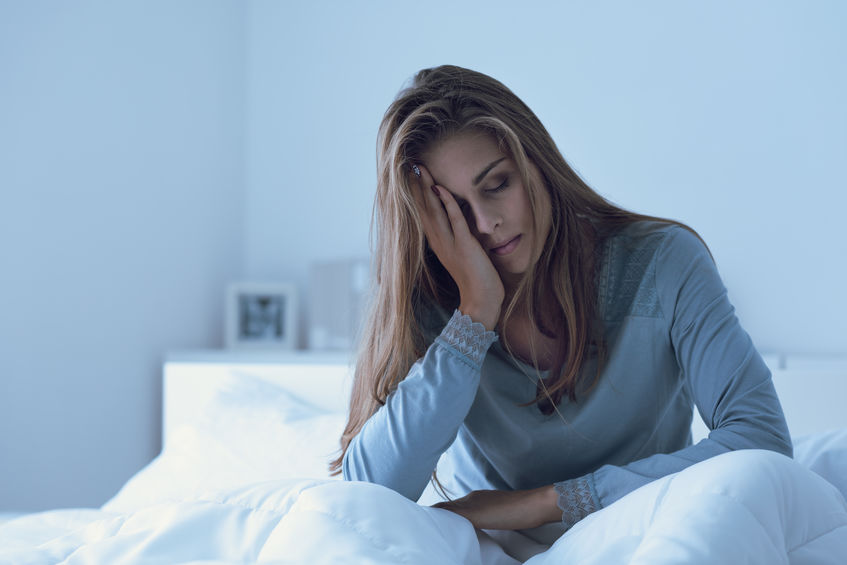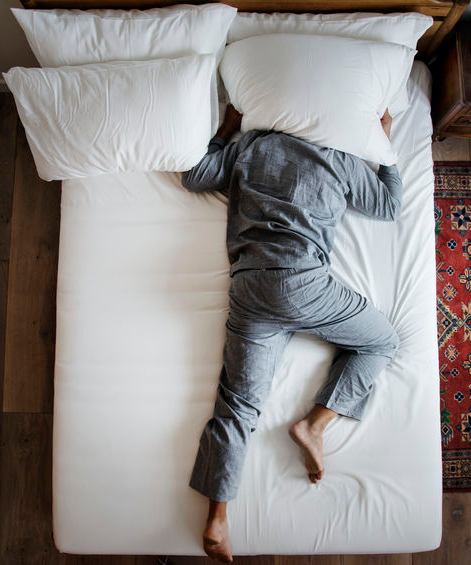Treatment of Insomnia & Sleep Disorders
What Conditions Cause Insomnia?
Insomnia treatment is very important because sleeping issue (i.e. sleep difficulties) is a common problem. Research shows that one in two adults has experienced insomnia symptoms. Over one in ten have symptoms severe enough that they interfere with functioning during the day.
So, what causes sleep problems? In this article, we review the potential physical health and mental health causes of insomnia.
According to the Diagnostic and Statistical Manual of Mental Disorders (DSM-5), sleep problems are sometimes symptoms of mental health conditions such as anxiety disorders (e.g., generalized anxiety disorder), mood disorders (e.g., major depressive disorder), and trauma-related disorders (e.g., posttraumatic stress disorder).
In other cases, sleep problems are indicative of conditions called sleep-wake disorders.


Mental health causes of insomnia and Sleep-wake disorders include:
- Insomnia disorder: Early morning awakening or difficulty falling asleep (or maintaining sleep).
- Hypersomnolence disorder: Excessive sleepiness despite getting seven or more hours of sleep.
- Narcolepsy: Episodes of a sudden and overwhelming urge to sleep, resulting in falling asleep at inappropriate times (e.g., while talking).
- Circadian rhythm sleep-wake disorders: Circadian system disruptions (e.g., due to working the night shift) resulting in severe sleepiness.
- Breathing-related sleep conditions: Snoring and similar breathing disturbances during sleep.
- Nightmare disorder: Recurrence of distressing dreams that involve dangerous situations.
- Non–rapid eye movement sleep arousal disorders: Incomplete awakening accompanied by sleepwalking or sleep terrors.
- Rapid eye movement sleep behavior disorder: Acting out disturbing dreams (e.g., shouting, cursing, punching, kicking).
- Restless legs syndrome: Having the urge to move one’s legs, often because of uncomfortable sensations that typically get worse at the end of the day and while resting.
- Substance/medication-induced sleep disorder: Sleep problems in response to intoxication or withdrawal (e.g., drinking too much caffeine, Valium withdrawal).
Physical health causes of insomnia
A variety of medical conditions may also contribute to the development of insomnia treatment. Some of these conditions, along with the related symptoms that might disrupt sleep, are listed below:
- Anemia: Restless legs.
- Congestive heart failure: Shortness of breath or problems breathing while lying in bed.
- Coronary artery disease: Chest pains.
- Dementia: Various sleep disturbances.
- Diabetes: Awakening due to increased thirst, hunger, or the urge to urinate.
- Delirium: Disrupted sleep-wake cycles.
- Endocrine conditions (e.g., menopause): Night sweats, hot flashes.
- Enlarged prostate: Waking up repeatedly to urinate.
- Gastroesophageal reflux disease: Coughing, worsening heartburn while lying down.
- Kidney disease: Restless legs and a variety of other reasons.
- Lung disease: Coughing, shortness of breath.
- Obstructive sleep apnea: Repeated arousal and awakening.
- Pain (e.g., arthritis, cancer): Not finding a comfortable position, frequent awakening.
- Post-stroke symptoms: Sleep apnea.
Treatment of insomnia and sleep problems
As can be seen, sleep problems are more complex than they may appear. They can be symptoms of mental health or physical health conditions (and medications used to treat these health issues). In addition, they are affected by many environmental factors, like working the night shift, frequent travel (due to jet lag), exercising close to bedtime, using electronic devices in bed, and sleeping in a noisy environment.
Therefore, if you have sleep problems, you would be well advised to get a full diagnosis. The diagnosis often consists of a review of your sleeping habits and medical or psychiatric history. In some cases, polysomnography (sleep study) might be necessary as well.
Once you receive a diagnosis, you will be given some recommendations about making changes to your environment (e.g., making your bedroom more sleep-friendly), in addition to medications and psychological treatments to address the underlying cause of your insomnia.
What is Treatment-Resistant Depression?
Treatment-resistant depression is depression that has failed to respond to at least 3 antidepressant medications from different drug classes.
What is Spravato?
Spravato Nasal Spray is a new FDA approved medication for treatment of chronic depression in adults. Please fill out the form to download our patient guide to get more information on this medication, who is the right candidate, treatment options, and potential side effects.
Talk to your doctor to see if Spravato is right for you.
Please note that Spravato can only be administered in a medically supervised healthcare setting that has been recognized as a certified treatment center.
Download your copy of:
Spravato Patient Guide
Health Insurance
About us
Contact us
About Harbor Psychiatry & Mental Health
We believe outstanding healthcare is delivered when we merge the science of medicine with the compassion of our hearts. We refer to this as “head and heart together,” inspiring constant improvement and lasting success.
Psychiatrists Orange County CA
Psychologists Orange County CA
Contact us
Address: 4631 Teller, Suite 100
Newport Beach CA 92660
Phone: (949) 887-7187
Email: info@harbormentalhealth.com
